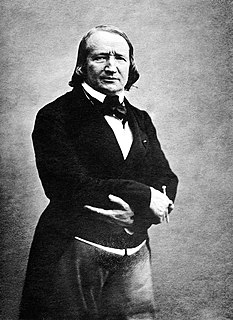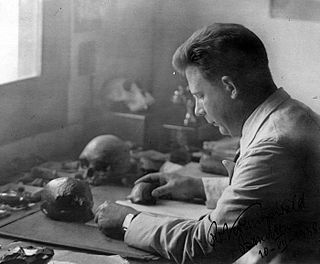A Quote by Alfred de Vigny
On the day when man told the story of his life to man, history was born.
Related Quotes
Julio's Day is a story of one man's life, but it's a great more than that as well. It's the story of the life of a century, also told as if a day. Beginning with Julio's birth in 1900 and ending with his death in 2000, the graphic novel touches on most of the major events that shaped the 20th century.
What a wee little part of a person's life are his acts and his words! His real life is led in his head, and is known to none but himself. All day long, the mill of his brain is grinding, and his thoughts, not those of other things, are his history. These are his life, and they are not written. Everyday would make a whole book of 80,000 words -- 365 books a year. Biographies are but the clothes and buttons of the man -- the biography of the man himself cannot be written.
Everything necessary to understand my grandfather lies between two stories: the story of the tiger’s wife, and the story of the deathless man. These stories run like secret rivers through all the other stories of his life – of my grandfather’s days in the army; his great love for my grandmother; the years he spent as a surgeon and a tyrant of the University. One, which I learned after his death, is the story of how my grandfather became a man; the other, which he told to me, is of how he became a child again.
Man did not address his inquiries to the earth on which he stood until a remarkably late stage in the development of his desire for knowledge. And the answers he received to the questions, "Where do I come from?", "What is man?", although they made him poorer by a few illusions, gave him in compensation a knowledge of his past that is vaster than he could ever have dreamed. For it emerged that the history of life was his history too.
I've always told Will, 'You can do whatever you want as long as you can look at yourself in the mirror and be okay.' Because at the end of the day, Will is his own man. I'm here as his partner, but he is his own man. He has to decide who he wants to be, and that's not for me to do for him. Or vice versa.
Once upon a time there lived in Berlin, Germany, a man called Albinus. He was rich, respectable, happy; one day he abandoned his wife for the sake of a youthful mistress; he loved; was not loved; and his life ended in disaster. This is the whole of the story and we might have left it at that had there not been profit and pleasure in the telling; and although there is plenty of space on a gravestone to contain, bound in moss, the abridged version of a man's life, detail is always welcome.
The question that faces every man born into this world is not what should be his purpose, which he should set about to achieve, but just what to do with life? The answer, that he should order his life so that he can find the greatest happiness in it, is more a practical question, similar to that of how a man should spend his weekend, then a metaphysical proposition as to what is the mystic purpose of his life in the scheme of the universe.







































